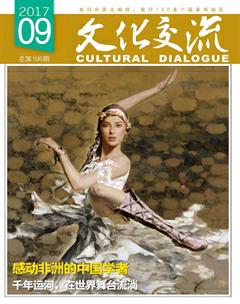“浙歌”创排民族歌剧《青春之歌》
梁凉
7月9日,浙江歌舞剧院、浙江交响乐团联合创排的民族歌剧《青春之歌》开排,并将于9月中旬在杭州首演。日前,该剧已被文化部列入“中国民族歌剧传承发展工程重点扶持剧目”,被浙江省委宣传部、浙江省文化厅列入2017年度重点项目,成为浙江献礼十九大的重点剧目。

用歌剧演绎半个世纪前的“青春小说”
此剧汇聚了浙歌最优秀的演员,还特邀了国内一线歌剧主创团队加盟。导演是中国名导张曼君。张曼君曾获得戏剧梅花奖、中宣部“五个一工程”奖、文华大奖、文华导演奖。采茶歌舞剧《山歌情》、京剧《马前泼水》、昆曲《一片桃花红》、歌剧《八月桂花遍地开》等名作都出自她手。编剧是中国首位“歌剧、音乐剧文学创作与研究”专业方向的硕士研究生赵玎玎;作曲吴小平是文化部优秀专家,作曲潘磊曾担任过上百台舞剧、话剧、交响乐的作曲。舞美由著名设计师修岩担纲。灯光设计是赫赫有名的“灯光诗人”周正平。
浙歌优秀青年歌唱家郑培钦扮演林道静,薛雷扮演卢嘉川,段永明扮演余永泽,严圣民扮演胡梦安,唐琳扮演王晓燕。“作为一个有着60年历史的歌舞剧院,拥有自己的原创歌剧,是必须啃下来的硬骨头。”为浙歌打造一部原创歌剧,一直是浙歌董事长王文龙为自己设立的目标。
张曼君是一个雷厉风行的女导演。7月7日刚落地杭州,她就开始进剧组排练。“我们要殚精竭虑地去做一番民族歌剧理想的探讨。”张曼君的话掷地有声。张导竟然在短短的几天排练过程中,自己从头到尾把她理解中的《青春之歌》全部唱了一遍。每个角色都有不同的情绪表达和唱法。
民族歌剧《青春之歌》舞台总体上将采取更为新颖的表演形式,突破目前歌剧中较为常见的“只歌不演”的状态,将歌和演高度融合起来,使之能成为中国民族歌剧的典型的表现特征。
这部歌剧用全新方式诠释半个世纪前的”青春小说”格外令人瞩目。
致青春:从长篇小说到民族歌劇
1958年,著名现代作家杨沫完成了她的代表作、长篇名著《青春之歌》。1959年又将这部小说改编成电影文学剧本。如今,这部”青春小说”又将以民族歌剧的形式见诸于世。
《青春之歌》自1958年出版以来,迄今已发行五百万册以上,成为新中国最畅销的长篇小说之一。在国外,日本、前苏联、英国、法国、阿尔及利亚、巴基斯坦、朝鲜、印尼、希腊等十几个国家有翻译本出版;在国内,也有好几种少数民族文字的译本出版。这部长篇小说曾经风靡一时,极大地震撼了广大读者,尤其是青少年读者的心灵,其生命力至今不衰。
文学,是时代的镜子、生活的教科书。人民为幸福生活而奋起斗争。这中间经历了艰难,曲折的道路。在这条不平坦的道路上,党的灯塔始终照耀着征途上的人们,使他们看到光明,看到未来,看到人类最美好的远景。小说中这种生活的实感,无论过去,还是今天,都会触动读者的心灵,使他们打开自己的思想闸门,去联想许许多多值得深思的问题。
《青春之歌》塑造了一系列人物形象,无论是坚强勇敢、成熟干练的卢嘉川、江华、林红、刘姐,或是爱好幻想、逐渐成长的林道静;无论是单纯幼稚、心地善良的王晓燕或是忧国忧民、浩气凛然的王教授等,他们都给读者留下了“美”的印象,使读者从心底里爱他们,赞颂他们。相反,对于自私狭隘、颓废消极的余永泽,对于贪生怕死、叛变革命的戴愉,对于阴险狡猾、手段毒辣的胡梦安等人的鞭挞,也唤起了人们对“丑”的憎恶。这些都很到位地被吸纳到如今的歌剧中。
这部小说着力塑造的林道静这个典型人物,在我国文学画廊里独放异彩,她将永远留在读者的记忆里。《青春之歌》细致地描写了林道静的成长过程,这是很有意义的。一个并非高大完美,却是真实可信、有血有肉的知识分子成长为革命战士的典型,深深地教育人们执着地去追求光明,永远奋进。
1959年年初,这部作品又被改编成电影,作为新中国成立10周年的“献礼片”公映,取得轰动效应,许多影院24小时上演;抗日时期流行的歌曲《五月的鲜花》随着这部电影的放映,再次流行全国。谢芳被著名导演崔嵬选中,扮演林道静而一举成名,感动了中外观众,从此步入影坛,成为中国电影星空中一颗耀眼的明星。
导演张曼君说,《青春之歌》是充满理想、激情的红色经典作品,通过林道静这一典型形象的塑造和他们那一代人为民族命运寻路、挥洒热血的经历,鲜活具体地体现了“知识分子是民族脊梁”、“国之命运主要担当”的话题。该剧在今天,对实现中华民族伟大复兴的中国梦仍有着深刻的现实意义。
燃烧吧,穿越时代的青春
民族歌剧《青春之歌》一号女主角林道静由著名青年歌唱家郑培钦担纲。郑培钦是国家—级演员、女高音歌唱家。多年来,她经常参加全国及省、市的大型文艺活动,并出访过美国、英国、法国、德国、意大利、日本、韩国、朝鲜等国,进行国际访问演出。
“歌唱是我天性中注定的追求,音乐是我生命里奔腾的动力……”郑培钦的演唱激情飞扬。庆祝建党90周年之际,在嘉兴大剧院举办“红船从这里启航·中国红色经典——郑培钦独唱音乐会”上,她先后演唱了《红船从这里启航》《绣红旗》《红梅赞》《十送红军》《唱支山歌给党听》等17首歌曲,抒发人民群众对党的真挚感情,弘扬了中华民族优秀文化,—首首、一曲曲,醉人心扉。
2013年,郑培钦拍摄了MV《中国选择了你》献礼党的十八大,并在中央电视台音乐频道《中国音乐电视》播出。郑培钦志存高远,情系人民,是—个有追求的青年歌唱家。
“作为一名歌唱演员,能在有限的艺术生涯中,唱一出优秀的民族歌剧,是我追求的理想。”郑培钦为这部期待已久的歌剧,做了大量前期案头准备。从人物塑造,到唱段设计;从台词表达,到服装呈现,郑培钦都力求“青春”——一个女性青春的求知与觉醒。
在今天這个时代,为什么去重温革命年代的青春故事?郑培钦常常思考着这个问题。“因为青春是恒温的,不管在哪个年代,青春的理想、激情和脉动是一样的。不管年龄多大,每个人都有自己宝贵的青春。”张曼君导演如是说。郑培钦在细细阅读了几遍小说原著后,也深切感悟到无论小说还是歌剧都含有深刻的人生哲理,启迪人们郑重地选择人生的道路。
郑培钦现已全身心地投入到紧张的歌剧排练中,她想用自己的歌声与激情点燃那穿越时代的青春,唱响伟大的中国梦!
在剧中扮演不同角色的歌唱家严圣民和段永明说,与西洋歌剧不同,民族歌剧《青春之歌》要有更为开放空灵的空间,用歌声讲述中国的故事,演绎一场中国青年追求理想之梦的旅程。
On July 9, Zhejiang Song & Dance Ensemble and Zhejiang Symphony Orchestra jointly started the rehearsal of . The opera play is scheduled to make its debut in Hangzhou in the middle of September this year.
The opera has been inscribed into a national opera project sponsored and operated by the Ministry of Culture. At the provincial level, the opera is officially recognized as one of the key cultural projects in 2017.
The opera, still in the making, is considered important partly because it is an original opera production created in Zhejiang, though the production crew includes masters from outside the province. The director Zhang Manjun is a theater director of national renown with many top awards for her direction. Zhao Dingding, the scriptwriter of the opera production, is Chinas first graduate who majored in creative writing of operas and musicals. Wu Xiaoping and Pan Lei, two composers of the opera play, were chosen for their artistry and brilliant career records. Wu is an expert working for the Ministry of Culture; Pan has composed for more than 100 dance dramas, dramas and symphonies. Art designer is Xiu Yan. Lighting is masterminded by Zhou Zhengping, nicknamed as “a poet of light”.
Wang Wenlong, president of Zhejiang Song & Dance Ensemble, succinctly explains why the two institutions joined hands in creating a new opera: “As a song and dance ensemble of 60 years, we must have a repertoire of our own. This creation is a must-do.”
The ensemble is as old as , a novel authored by Yang Mo and released in 1958. It portrays a young woman who grows up to fight for the future of the country. It inspired the whole generation of young people back then. More than 5 million copies have been printed since the first edition. Shortly after it hit the market, the novel was translated and distributed in more than ten countries such as Japan, the former Soviet Union, UK, France, Algeria, Korea, Indonesia and Greek. In China, it was also translated into several minority languages. In 1959, it was adapted to a film. It is a unique novel in the history of modern Chinese literature.
The new creation will be something new. Most opera plays emphasize singing. Artists are mostly vocalists. created in Zhejiang will try to be balanced in singing and performing so that it will be different and serve as a landmark for more operatic innovations in the future.
“The opera play will be distancing itself from the traditional western style,” said Yan Shengmin and Duan Yongming, two vocalists of the play. “The play in Chinese style will tell a Chinese story in Chinese voices. It is about a journey young people take in their pursuit of dreams.”
The director Zhang Manjun agrees. In the first few days of the rehearsal, she herself experimented all the arias of the opera in various styles to see how they should best express the sentiments she wanted.
, according to the director, is an opera performance full of ideal and passion. The heroine represents a generation of young people exploring a path to save the nation and find its destiny. The play embodies the idea that intellectuals should be the spine of the nation and should carry the nation on their backs. The production is relevant to the Chinese dream for the great rejuvenation of the Chinese nation.
——以林道静为例

